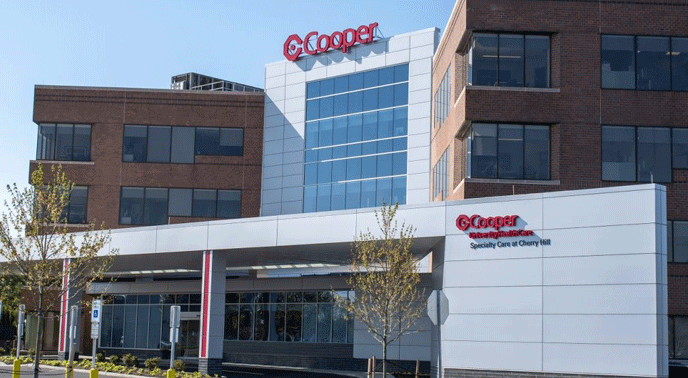customer story


Cooper University Health Care is the clinical campus for Cooper Medical School of Rowan University and a leading provider of health services to southern New Jersey. Currently, it serves more than half a million patients a year. With ambulatory offices spread throughout New Jersey and Pennsylvania, Cooper employs 700 physicians in more than 75 specialties and a total of 6,000 staff. Coupled with its educational mission, Cooper physicians are involved in a broad research and development agenda, keeping abreast of changing modalities in medical care. Until recently, Cooper kept its clinicians and employees updated on healthcare regulatory changes with paper based or in-person compliance training programs. New employees typically received handouts and returned a signed acknowledgement at the end of the introductory training day. Likewise, existing employees would receive similar sheets of compliance updates with a short assessment and attestation form at the end. Constantly evolving regulations, combined with a rapidly growing organization and conflicting employee schedules soon made this type of training impractical. Moreover, the compliance team had no effective system to track whether education was completed or to ensure employees understood the training. By its nature, the compliance program had to focus more on documentation
than education.
The Office of Inspector General stipulates that education is one of the seven elements of an effective compliance program, so regulatory compliance training was a top priority for the organization. In selecting a system, it was considered essential that content was regularly updated. The administration also wanted to support these and other education programs on their learning management system (LMS). Faced with these challenges, Cooper’s former compliance director, Robert Kay, advocated for the organization to move to a comprehensive online training system. This program would not only track employee progress, but would also provide interactive, engaging content that was updated on a regular basis.
With thousands of employees spread over the region, the only way to effectively verify that employees are offered and receive the correct training is through an online system,
said Kay. Even more important is having a system that can ensure employees are receiving the most accurate, up-to-date information as part of their training.
After a thorough vetting process, Cooper determined that HCCS offered the ideal compliance content for its needs. HCCS content is delivered to learners in an engaging, interactive style,
Kay explained. Other vendors delivered courses in a manner similar to ordinary PowerPoint presentations, lacking the interactive and creative approach that appeals to adult learners. Furthermore, the regulatory compliance content from other vendors was lacking because they failed to fully consider the perspective of an integrated healthcare organization. Despite the often dry and complex issues involved in compliance, HCCS’ training modules engaged employees in a variety of job roles. In addition to the Professional Compliance course, Cooper also acquired HCCS courses for Corporate Compliance, HIPAA Compliance, the Deficit Reduction Act, and Identity Theft Prevention.
The HCCS training courses were integrated into the organization’s Learning Management System and were rolled out to senior management first, to encourage topdown acceptance. After senior management was trained, nursing staff was next, followed by other clinicians and then the rest of the hospital staff. The organization then trained all staff members at their ambulatory clinics. Cooper employees responded positively. Completing training when it fits in their schedules and having courses available from any computer are major benefits. Employee feedback indicates they enjoy and learn from the engaging multimedia courses with full-motion video and interactive features. Compliance training is never a favorite part of anyone’s job, but most employees tell us they learn something new and it’s meaningful,
Kay said. Supervisors and compliance staff appreciate being able to easily track which employees have completed training and assessments, as well as the simple reporting functions.
Compliance staff at Cooper continues to be pleased with the HCCS courses, and the HR department recently added sexual harassment prevention training to its array of learning modules. Kay has been impressed with HCCS’ client service, which included a call from the company president to ensure Cooper’s satisfaction. HCCS has always worked well with us on any issue or question we’ve had since adoption,
Kay noted. They’ve gone the extra mile to make sure we’re happy.
Apart from the wide array of courses addressing professional and corporate compliance, the greatest benefit for Cooper is that training is now tracked, monitored and documented, mitigating any compliance violation risk for the organization. That piece of mind allows clinicians and staff to concentrate on their core competencies: world-class patient-centered care, education and research—all resulting in a healthier community. HCCS has helped us propel our compliance training and other online education programs into the 21st century,
Kay said. I’ve seen enough of the other courses to know that if you do compliance training online, HCCS does it better than anyone else.
HealthStream’s learning management system and healthcare training solutions support medical training initiatives and allow for the best patient care.
View All Learning & PerformanceExpand the decision-making skills and effectiveness of your healthcare workforce with HealthStream's workforce development programs and services.
View All Clinical DevelopmentComprehensive, industry-leading provider onboarding and credentialing software that validates health outcomes and supports provider assessment.
View All CredentialingMake sure your healthcare staff can schedule out appointments and work schedules with ease using our line of nurse scheduling software solutions.
View All SchedulingWhen you enact HealthStream's quality compliance solutions, you can do so with the confidence your healthcare organization will meet all standards of care.
View All Quality & ComplianceUtilize patient access solutions and advanced reimbursement solutions to manage clinical denials and improve your organization’s reimbursement strategy.
View All ReimbursementLearn about our advanced resuscitation training solutions. Our solutions are designed to help improve patient outcomes.
View All Resuscitation